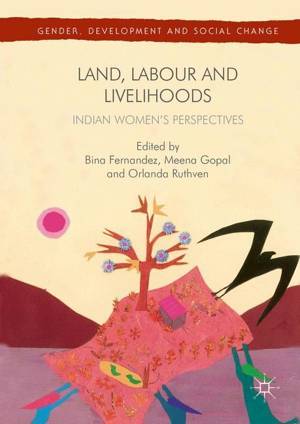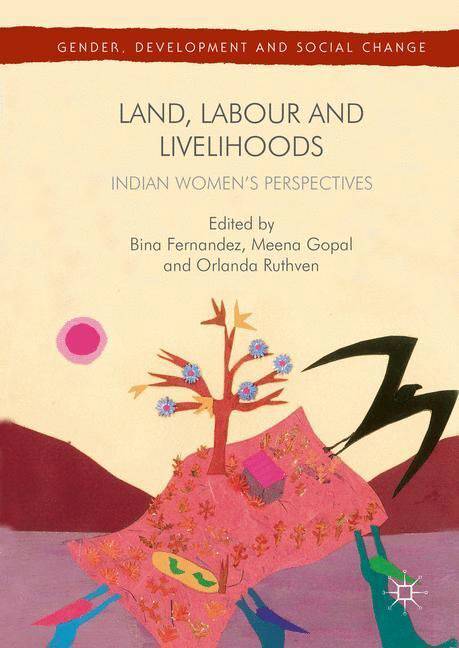
- Retrait gratuit dans votre magasin Club
- 7.000.000 titres dans notre catalogue
- Payer en toute sécurité
- Toujours un magasin près de chez vous
- Retrait gratuit dans votre magasin Club
- 7.000.0000 titres dans notre catalogue
- Payer en toute sécurité
- Toujours un magasin près de chez vous
Land, Labour and Livelihoods
Indian Women's Perspectives
Bina Fernandez, Meena Gopal, Orlanda RuthvenDescription
This book brings together a unique collection of theoretical and empirical analyses of women's access to land, labour and livelihoods in contemporary India. The authors recognize that gender relations must be viewed intersectionally, along with other social relationships such as caste, ethnicity, religion, sexuality and age, in order to inform an integrated analysis of women's persistent disadvantage in India. The chapters examine a diverse range of rural and urban livelihoods within sectors such as tea plantations, nursing, hair salons, sex work and waste collection. Documenting the shifts in these sectors in the context of economic liberalization, the authors offer insights on the challenges of development interventions as women negotiate shifts in their livelihood options. Written to engage, the contributions to this book will be of interest both to the general reader and to academics and practitioners in development and gender/women's studies.
Spécifications
Parties prenantes
- Auteur(s) :
- Editeur:
Contenu
- Nombre de pages :
- 352
- Langue:
- Anglais
- Collection :
Caractéristiques
- EAN:
- 9783319408644
- Date de parution :
- 15-12-16
- Format:
- Livre relié
- Format numérique:
- Genaaid
- Dimensions :
- 152 mm x 213 mm
- Poids :
- 612 g

Les avis
Nous publions uniquement les avis qui respectent les conditions requises. Consultez nos conditions pour les avis.






